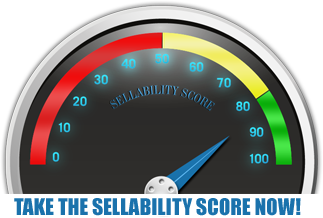Written by Danielle Fugazy and provided courtesy of Axial.net
The M&A environment continues to be as competitive as ever. Looking for relief from high valuations and hotly contested auction processes, many private equity firms and strategic acquirers are moving down market.
It’s no secret that companies purchased at lower entry valuation generally achieve better returns because of their potential for multiple expansion. This is not lost on many of the largest players in the private equity industry. The venerable KKR has taken an interest in smaller technology, healthcare, and industrial businesses — some generating as little as $25 million — and is currently raising a middle market fund. Two years ago, another giant private equity firm, The Carlyle Group, raised $2.4 billion to pursue middle market buyouts in North America. The fund targets control investments requiring equity capital of as little as $20 million to $200 million per transaction.
As the larger private equity firms move down market, so do the lenders. “The larger lenders compete for smaller deals when their sponsor relationships come down. They follow their clients, but it’s not necessarily where they focus,” says Joseph Burkhart, a managing director with Saratoga Partners.
Impact on Traditional Lower Middle Market PE Firms
The impact of larger players moving down is twofold: first, traditional lower middle market private equity firms are pursuing additional strategies so they can continue to compete as the larger players come in to the space while others are working harder than ever to win deals today. For example, earlier this year Sentinel Capital Partners, which was already investing in the lower middle market, closed on Sentinel Capital Partners VI at $2.15 billion, and Sentinel Junior Capital, a $460 million fund that gave the firm a presence in the mezzanine financing market. Also early this year, Huron Capital closed on its inaugural non-control fund The Huron Flex Equity Fund with $142 million, which gives the firm flexibility to make non-control investments that are smaller than their typical deals.
Watervale Partners, a private equity firm that spun out of Linsalata Capital Partners last year, is looking for deals pretty far down market in hopes of escaping some of the competition in the larger markets. Unlike Linsalata—a private equity firm focused squarely on the middle market—the Cleveland, Ohio-based Watervale is looking to make control investments in companies with less than $6 million of EBITDA. The typical transaction value for Watervale will likely be less than $50 million.
“There’s no question that firms are moving down market in general, but at some point—we think around $6 million in EBITDA—the economics call for a different model and all of your support systems change,” says Bacon. “One of the advantages of larger firms is their ability to absorb dead deal costs or spend more money before exclusivity; that isn’t as prevalent to these smaller deals where the company really can’t handle multiple bidders simultaneously.”
In today’s frothy market one of the biggest impact of larger firms coming down market is the lack of exclusivity on potential deals. With bankers asking multiple parties to do the proper due diligence on a company, many lower middle market firms are at a disadvantage. While the larger firms can afford to spend with no exclusivity it’s not easy for smaller firms to that.
Dan Ryan, a partner at lower middle market private equity firm Milestone Partners, says his firm recently submitted a letter of interest to acquire for a tech-enabled solutions platform. When the process started the company’s valuation was a little higher than $100 million. A firm with a $2 billion fund wound up as the winner and by the time the deal was closed the valuation has risen by 33 percent. When the deal was closed there were seven parties that had undergone extensive due diligence without exclusivity. “A larger firm can more easily afford to spend significant dollars with attorneys, accountants and other vendors to conduct preliminary due diligence without exclusivity. It’s over $100,000 spend all-in. For a lower middle market firm, $100,000 is meaningful. We can’t expose ourselves and our LPs to that risk without real confidence in our ability to close the deal and add value,” says Ryan. “We really need to pick our spots.”
Additionally, buyers are competing on speed to close and larger firms typically don’t have a financing contingency, which gives the larger firms an advantage.
While these dynamics have made it tough for lower middle market buyers, conversely, it’s a great time to be a seller in the lower middle market. Case in point: Inverness Graham is squarely a lower middle market firm investing out of its $283 million third fund. When the firm recently sold a business with $23 million in revenues, they got 74 letters of interest on the business. Fifty percent of them were from firm with funds north of $750 million; some of those firms had funds of more than $1 billion.
However, Matt Moran, a principal with Inverness, notes that sector focus does make a difference when it comes to the larger players’ appetite. Moran says you can expect to see more firms pushing into the lower middle market around sectors like healthcare services, vertical software, and industrial technology that have large consolidation play opportunities.
Saratoga Partners’ Burkhart agrees. “I have a relationship with an owner of a nurse staffing business with less than $2 million in EBITDA and people are clamoring to look at the business — but nursing is one of those hot sectors right now.”
In hopes of looking more unique sellers many lower middle market firms have turned to specialization. “There’s a huge trend toward specialization. Firms are changing their entire hiring, fundraising, and sourcing strategies. It’s staggering,” says Moran.
““Being a generalist fund isn’t viewed as favorably as it once was. Sector specialization in the lower middle market has become a differentiator,” says Burkhart. It’s important to note, that although more firms are heading toward specialization the returns aren’t proving out to be exponentially larger. According to research done by RCP Advisors, a limited partner that invests in lower middle market private equity firms, the likelihood of earning an outsized return on a transaction executed by a manager whose strategy is characterized by sector specialization is only about 100 basis points higher than a deal that is executed by a generalist fund.
How to Win
The increased competition has made it hard but not impossible for traditional lower middle market firms to win. The market dynamics has forced these firms to stay true to their strategies. “You can’t let what others are doing change your process. Our best deals are when we stick close to our knitting. There is more noise out there and that probably won’t change, but you still have to go after what you want with certainty and conviction,” says Moran.
Milestone’s Ryan says his firm has lost more deals than it’s won. Many of the deals they have won have come down to operating expertise and/or relationships. In one case the firm’s operating partner had specific operating experience in a company’s niche and was able to make a strong connection with the company’s CEO as a result. In another case, as a result of a longstanding relationship with Capstone Headwaters, the investment banker on the deal, Milestone got to meet the team ahead of the process, which was extremely helpful. “This doesn’t happen all the time. But Capstone Headwaters understands our approach and our industry focus and what we get excited about, and they called us early. It was really helpful,” says Ryan. “It’s these kinds of things that allow the smaller firm to win deals in today’s market.”
Is your business creating maximum value?
Complete the “Value Builder” questionnaire today in just 13 minutes and we’ll send you a 27-page custom report assessing how well your business is positioned for selling. Take the test now:






